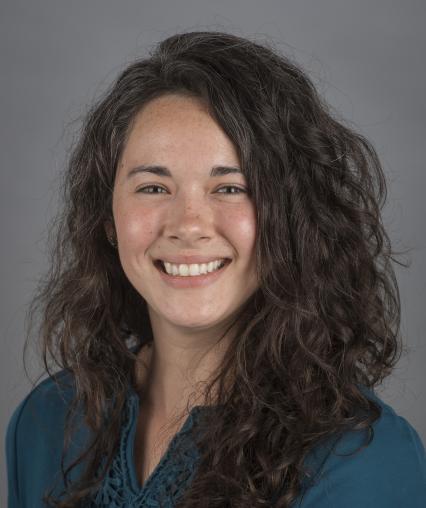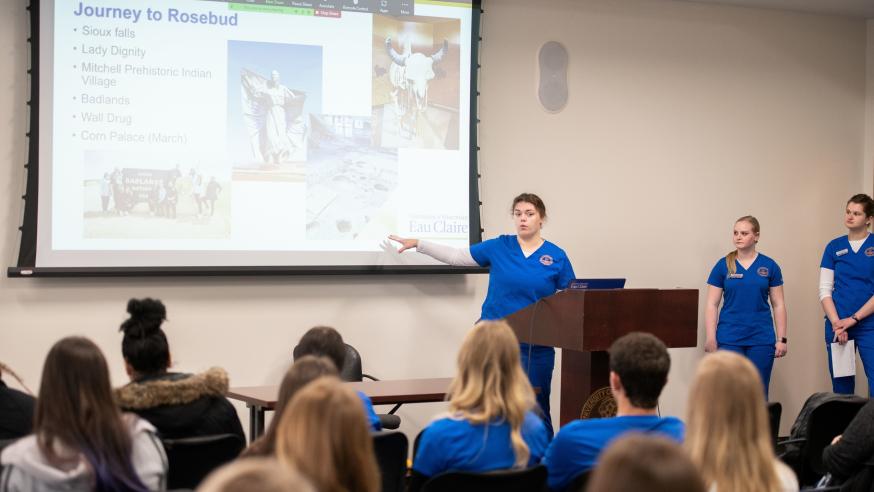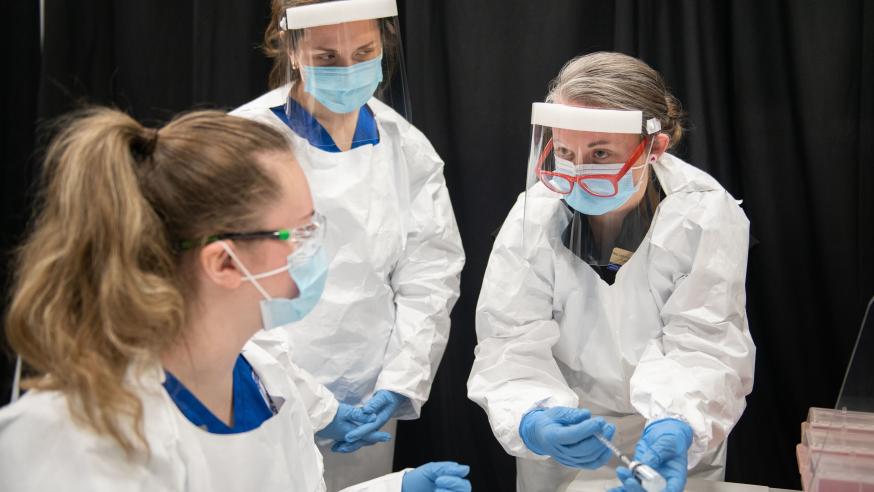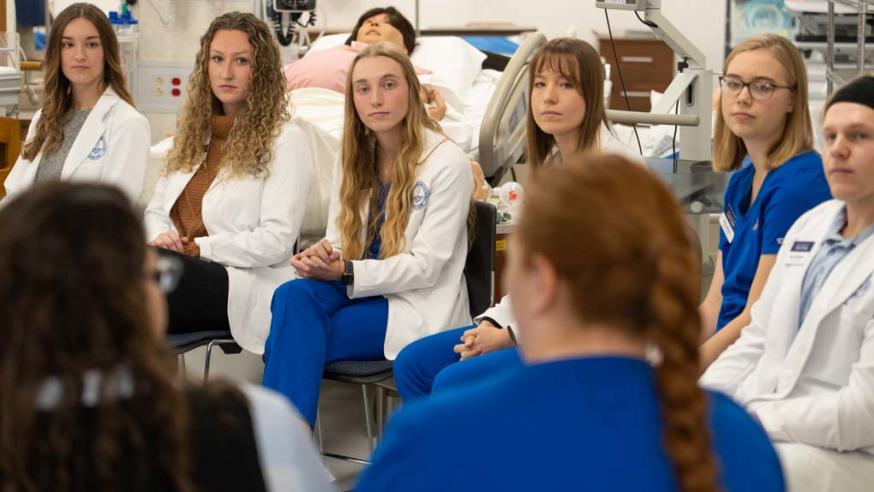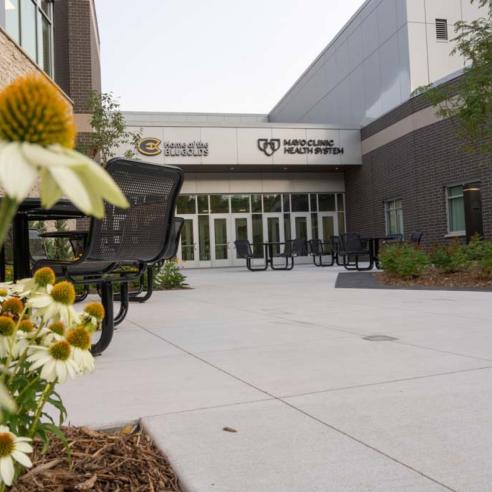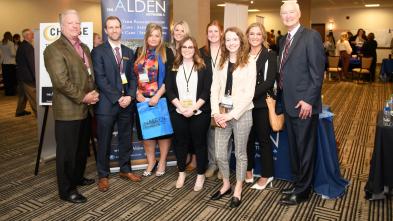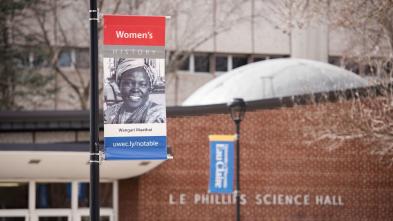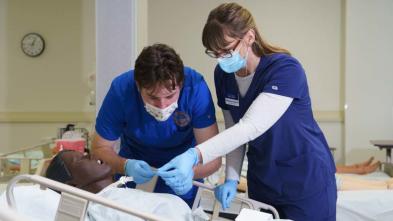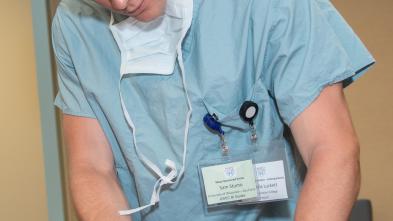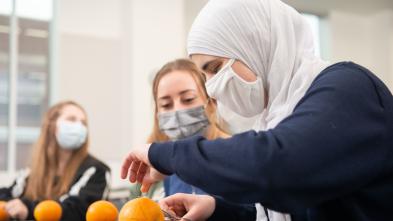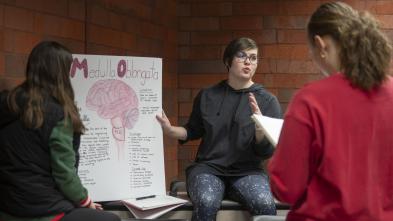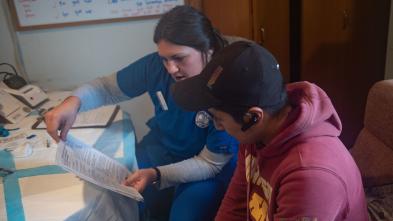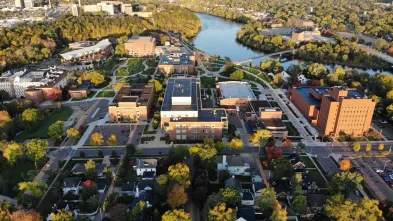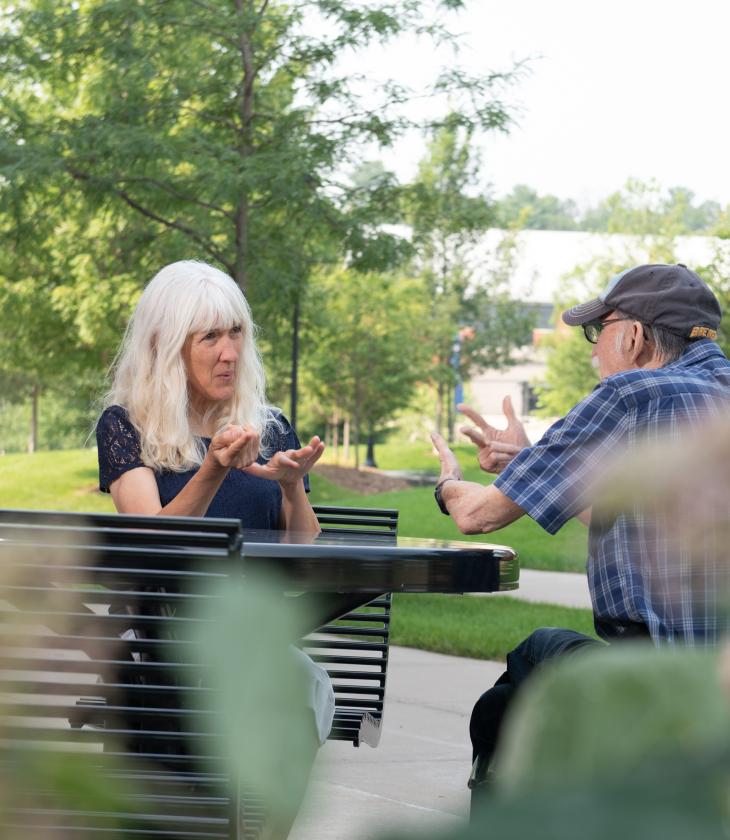
Health Humanities
Integrate compassion and humanities into health science and research to improve, deepen, and strengthen experiences for health care providers and their patients.
Bring Humanity Back to Healthcare
One of only a few programs like it in Wisconsin, the growing program offers an interdisciplinary approach to studying health, helping you to become patient-centered, ethically intelligent, skilled in communication and competent with diverse populations. These skills are helpful for students applying to health professional schools or those interested in pursuing careers in health care leadership, government, civil engagement, and administration in the public and private sectors.
Curriculum throughout the program explores a variety of topics including human values; bioethics; history of medicine; ethics of health care; illness and health care practices; human dignity and health inequities. The 15-credit certificate is rooted in experiential learning, requiring students to participate in at least one internship, research project, immersion experience, or service-learning experience.
Upon completion of the program, you'll have a deeper understanding of illness, suffering, healing, aging and dying as human experiences and be well prepared to provide more empathetic and humane health care to all.
Program Details
Blugold Stories
Justthe
facts
Through a robust curriculum shaped by more than 10 different departments, you will use the humanities and the social sciences to discover the historical and modern-day constructions of health, illness and death and what we can do to improve our daily lives.
Explore how human behavior affects critical health care decisions. Raise ethical and philosophical questions about the equitable provision of and access to health care. Discuss what changes can be made to improve medicine, public health and health care practices. And uncover uneven consequences that are grounded in histories of structural racism and xenophobia.
Here are a few courses in Health Humanities at UW-Eau Claire.
HIST 348
History of Public Health in the United States
Introduces students to the key features of the history of public health in the United States, focusing primarily on developments in the twentieth and twenty first centuries. Organized around case studies of significant achievements in public health.
HIST 313
Gender, Sex, and Science in European History
This course examines recent scholarship in European history on gender, sexuality, science, and the body. It focuses on the historical construction of gender and sexuality, the gendering of science, inclusion/exclusion in academic and scientific work.
HIST 349
The Global History of Disease
This class explores the global history of disease from ancient times to the present. Includes social, political, and cultural aspects of the history of disease.
Get More Info
Sign up to receive additional information about our campus.
Meet the Faculty
